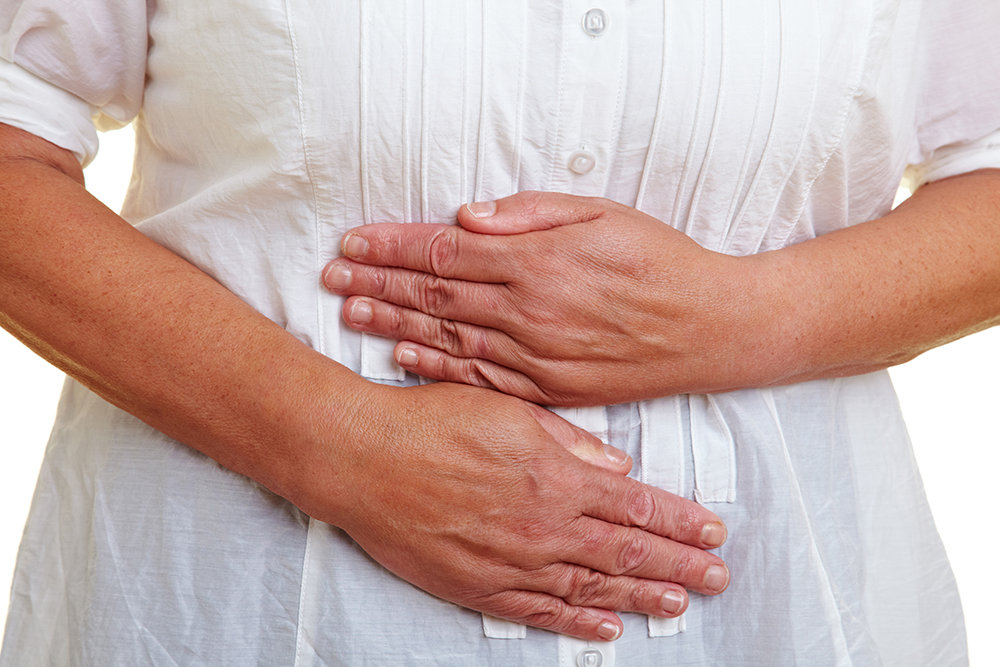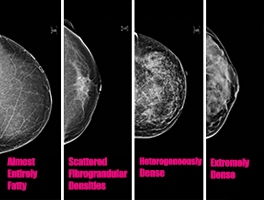
Constipation, diarrhea, cramps. All women have tummy trouble from time to time. But, irritable bowel syndrome, or IBS, opens new tab, can keep your bowels in a constant bind and make going about your day a bit more challenging.
Irritable bowel syndrome is a stomach disorder that causes pain, recurring diarrhea or constipation, or both. IBS is twice as common in women than men. In fact, one in six women have it.
Between the frequent trips to the bathroom and persistent belly pain, living with IBS is anything but smooth sailing. When you battle IBS, common symptoms such as reflux, gas and feeling full or bloated, on top of constipation and/or diarrhea, can mean missed days of work and sitting on sidelines (or standing in the bathroom line) at social events.
Identify Your IBS
Your doctor will use specific criteria and your description of symptoms to make an IBS diagnosis. Diagnosis criteria include:
-
Stomach pain that occurs at least one day per week, on average, for three consecutive months and that is associated with two or more of the following:
- Stomach pain that improves after a bowel movement
- Changes in how often you have a bowel movement
- Changes in how your bowel movement looks (constipation, diarrhea or both)
When describing your symptoms, tell all, even if the details are embarrassing.
Your doctor may refer to you to a gastroenterologist, opens new tab, a doctor who specializes in treating gastrointestinal (GI) tract diseases, for tests that can rule out other reasons for your symptoms.
Help Your IBS
IBS treatment is on a case-by-case basis. Changes to your diet and lifestyle are usually the first steps. Eating smaller meals and low-fat foods may help. A high fiber diet can help with constipation, while alcohol, caffeine and dairy may trigger symptoms. Track what you eat so you can identify and avoid the troublemakers. Regular exercise, anti-diarrheal medication or stool softeners can also relieve pain and reduce your symptoms.
Follow a FODMAP Diet
Research has shown that certain carbohydrates may contribute to IBS symptoms. These carbs are: Fermentable, Oligo-saccharides, Di-saccharides, Mono-saccharides and Polyols. A GI doctor may prescribe a low-FODMAP diet , opens new tabto help with your symptoms.
Red Flag Warnings
It can be tough to determine when tummy trouble is temporary and when it's something more serious. Call your doctor if you experience:
- Abdominal pain at night that prevents sleep
- Abnormal lab work, such as results that indicate anemia
- Diarrheal episodes that wake you at night
- Rectal bleeding or bloody stools
- Weight loss
Related Articles

November 7, 2024
10000 Steps Good Enough
How many steps did you log today? It’s a popular question, and the gold standard answer is 10,000. Yet, depending on your health goals, you may need to pick up the pace.

June 1, 2019
5 Day Meal Prep
Who says eating healthy has to be difficult? One of our Registered Dietitians shows us how easy it can be to prep lunches for a busy week.

June 1, 2019
5 Foods With Health Benefits
Dark ChocolateBoost your mood and your memory (think antioxidants) by savoring dark chocolate. It may also help your heart health. Just 1 oz. is all it takes...

December 9, 2019
5 Free Indulgences
Are you ready for the hubbub of the holidays? The season’s festivities are always fun, but they can also wear you down. If your holiday spirit needs rechargi...

June 1, 2019
5 Minutes to a Happier You
Feeling stressed, angry or anxious? Head to the great outdoors. A new study has found that a five-minute walk can work wonders for your mood.The more natural...

July 27, 2022
5 Must Have Nutrients
Vitamins and minerals do a body good, but who has time to figure out which foods offer what benefits? This short list of five essential nutrients, opens new ...


